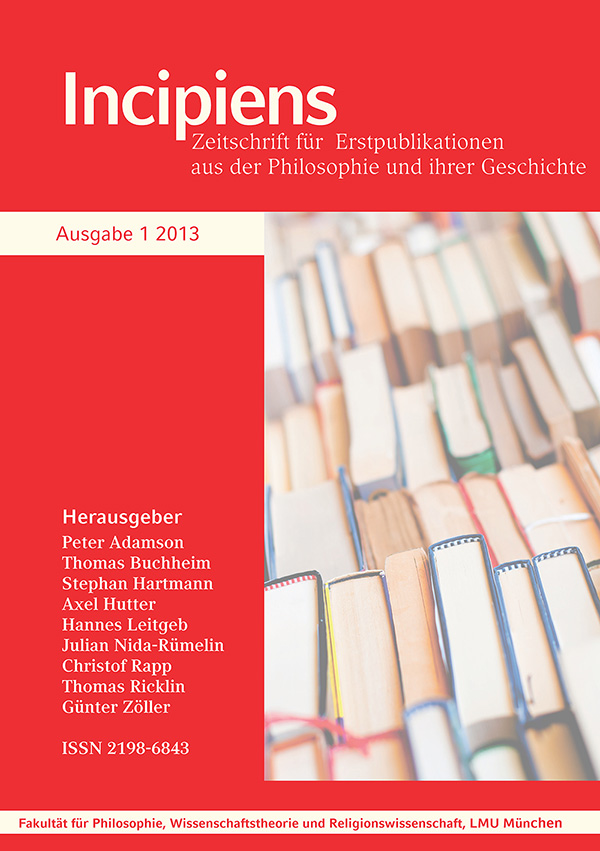Noêsis als intuitives Erkennen in Platons Epistemologie
Abstract
Die Frage, ob die noêsis bei Platon als intuitives Erkennen gedeutet werden sollte, ist besonders in der kontinentaleuropäischen Platon-Exegese umstritten – ebenso die damit verbundene Frage nach dem Verhältnis von noêsis und dianoia zueinander. Wie soll ein spontanes, unmittelbares, synoptisches Erkennen (noêsis) an das analytische, diskursive Denken (dianoia) gebunden sein? Der vorliegende Artikel zeigt, dass durch die Unterdefinition des Begriffs ‚Intuition‘ in der Debatte um die o. g. Fragen Unklarheiten verursacht werden. Darum scheint es ein vielversprechendes Unterfangen, den Intuitionsbegriff in der Platon-Hermeneutik systematischer zu klären; dazu werden erste Ansätze gemacht. Zweitens leistet der Artikel einen Erklärungsbeitrag zum Verhältnis von dianoia und noêsis und verfolgt eine Interpretation weiter, der zufolge beide Erkenntnisformen verschränkt in der Dialektik zur höchsten Erkenntnis führen.
In continental Plato-Exegesis it is a controversial matter of debate if noêsis may be interpreted as some sort of intuitive apprehension, and how to explain the relationship of dianoia to noêsis. How can a spontaneous, unmediated, synoptical apprehension (noêsis) be bound to an analytical, discursive, successive thinking (dianoia)? This article, in the first place, points out that a widely spread ambiguity of the word ‘intuition’ is the source of confusion in the above mentioned debate. The article provides a detailed and systematical review of this important term. Secondly, this article comes forward with a proposal how to explain the relationship between dianoia and noêsis. This approach seeks to bridge the gap between dianoia and noêsis and empowers an interpretation according to which both mental faculties interact in the dialectic process.

